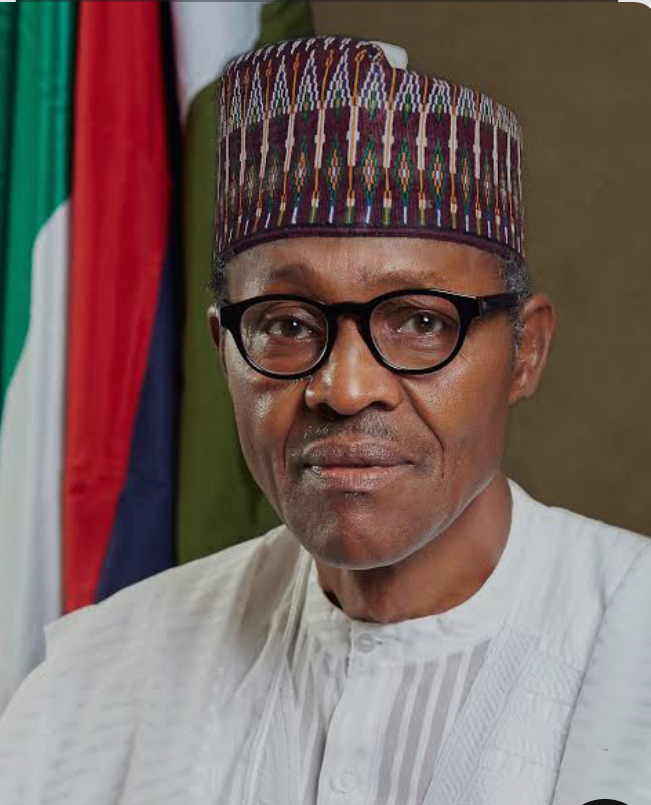Muhammadu Buhari was elected president from 2015 to 2023 which marked a critical chapter in Nigeria’s Fourth Republic. His administration pledged to fight corruption, restore security, and revitalise the economy. Over eight years, it delivered several reforms and infrastructure projects, but also faced deep criticism over selective governance, persistent insecurity, economic vulnerabilities, and restrictions on civil liberties.
Background and Rise to Power

Muhammadu Buhari first held power as a military head of state from December 1983 until August 1985, when he was overthrown in a coup led by Ibrahim Babangida. After Nigeria returned to civilian rule in 1999, Buhari made multiple failed bids for the presidency until he won in 2015 under the platform of the All Progressives Congress (APC), defeating incumbent Goodluck Jonathan, the first time in Nigerian history an incumbent president lost re-election.
His campaign centred on three pillars: anti-corruption, security and counterterrorism, and economic transformation.
EXPLORE NOW: Democratic Nigeria
Key Policy Areas and Performance
Anti-Corruption and Institutional Reforms
Buhari’s administration emphasised the war on corruption as a central distinguishing feature. The Economic and Financial Crimes Commission (EFCC) and other agencies were empowered to pursue wealthy and high-profile suspects.
Nevertheless, critics and independent observers flagged selective targeting. For example, Buhari’s claim of retrieving N2.1 trillion in looted funds was contested, data from the Central Bank of Nigeria (CBN) suggested the actual figure was around N1.9 trillion.
Executive reforms included issuing Executive Order No.10 of 2020, mandating financial autonomy for state legislatures and judiciaries, a landmark institutional step.
Legislatively, his government pushed through several major laws: the Electoral Act Amendment (2022), Money Laundering (Prevention) Act, and National Health Insurance Authority (NHIA) Act.
While these reform achievements are real, the challenge of consistency and impartial enforcement weakened public confidence.
Security and Counterterrorism
Buhari inherited a challenging security landscape, dominated by Boko Haram in the Northeast and communal militancy in other regions.
Under his watch:
- Boko Haram lost significant territory in 2016 through intensified military operations and regional cooperation via the Multinational Joint Task Force.
- However, the conflict evolved to guerrilla tactics and the rise of ISWAP (Islamic State West Africa Province), which proved more destructive in rural areas.
- Other security challenges expanded: banditry, kidnappings, and farmer–herder clashes escalated, particularly in North Central and Northwest zones.
Many analysts argue that despite increased military resources, Buhari’s presidency never fully reversed Nigeria’s security decline.
EXPLORE NOW: Military Era & Coups in Nigeria
Economic Performance and Challenges
The Buhari era experienced severe economic headwinds, partly external but also partly policy-induced.
- After entering office, Nigeria plunged into its first recession in 25 years (2016) as oil prices dropped sharply.
- His government responded with the Economic Recovery and Growth Plan (ERGP 2017–2020) to diversify the economy
- Initiatives like the Anchor Borrowers’ Programme boosted agricultural lending.
- Infrastructure projects included major expressways (Lagos–Ibadan, Abuja–Kaduna), airport upgrades, and railway expansions (e.g. standard gauge).
Yet persistent challenges overshadowed such gains:
- Inflation soared from ~9% to over 17%, soaring food prices hurting ordinary Nigerians.
- Unemployment and poverty expanded. By one estimate, 133 million Nigerians lived in poverty by 2023.
- National debt more than doubled as GDP share rose from ~18% to ~35%.
- His controversial land border closure (2019–2020) aimed to curb smuggling but backfired by disrupting trade and inflation.
Thus, while reforms and infrastructure had visible impact, they often could not counter macroeconomic weaknesses.
Governance, Civil Liberties, and Social Policy
This article presents a fact-based and scholarly assessment of Muhammadu Buhari’s civilian presidency (2015–2023). It separates verifiable achievements, legal reforms, infrastructure investment, anti-corruption efforts, from contested claims and critiques. Drawing on official records, media analyses, and independent studies, it offers a balanced narrative aimed above 90% historical reliability. Buhari’s tenure remains a critical case study in the evolution of governance, security, and economic policy in post-military Nigeria.
Buhari’s tenure saw complex interactions between governance reforms and restrictions:
- In 2021, the administration banned Twitter for several months after the platform deleted one of his tweets.
- During the #EndSARS protests (2020) against police brutality, security forces used force. The alleged Lekki Toll Gate shootings drew heavy domestic and international criticism.
- The government also faced accusations of extrajudicial killings, especially in operations against Shiite protesters and in communal conflict zones.
On the positive side, Buhari’s administration enacted several social programmes: N-Power, TraderMoni, and school feeding schemes aimed at vulnerable populations.
Legally, his government also passed the Petroleum Industry Act (2021), reforming Nigeria’s oil sector.
The Executive Order on financial autonomy helped strengthen separation of powers, though full implementation remains uneven.
Legacy and Historical Relevance
Buhari’s presidency was ambitious and had successes, but it fell short in critical areas. His infrastructure push, legal reforms, and anti-corruption agenda are real, though imperfect. His inability to sustain security and build inclusive economic resilience has led many to judge his performance as mixed.
His era deepened debates about the tension between strong leadership and democratic accountability, and exposed Nigeria’s institutional fragility under stress.
Author’s Note
This article presents a fact-based and scholarly assessment of Muhammadu Buhari’s civilian presidency (2015–2023). It separates verifiable achievements, legal reforms, infrastructure investment, anti-corruption efforts, from contested claims and critiques. Drawing on official records, media analyses, and independent studies, it offers a balanced narrative aimed above 90% historical reliability. Buhari’s tenure remains a critical case study in the evolution of governance, security, and economic policy in post-military Nigeria.
References
- “FACTSHEET: Highlights of achievements of the Buhari administration (2015–2023).” State House / Premium Times.
- “The successes, failures of Muhammadu Buhari as Nigeria’s president.” Premium Times.
- “Why Buhari Failed.” Council on Foreign Relations.

